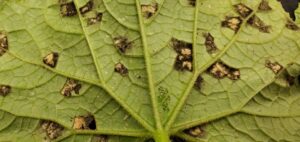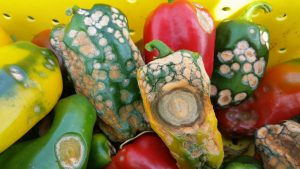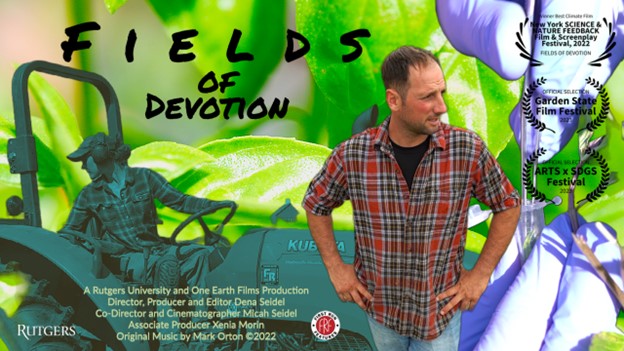Cucurbit downy mildew has been confirmed on cucumber in Gloucester County (7/1) and in Atlantic County (6/13) in southern New Jersey. This is the second report of CDM in the state and region this growing season. All cucumber and cantaloupe growers should scout on a daily basis and initiate a preventative fungicide program immediately. All other cucurbit plantings need to be scouted on a regular basis. CDM was last confirmed on cucumber and butternut squash in coastal South Carolina. Remember, some CDM isolates fall into Clade I which predominately infect watermelon, pumpkin, and squash, where CDM isolates in Clade II predominately infect cucumber and cantaloupe.
For more information on CDM, the clades, and CDM control please click here.

Cucurbit downy mildew sporulating on the underside of an infected cucumber leaf.


